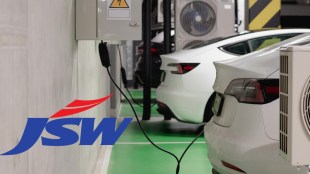As India stands on the cusp of unveiling its Electric Vehicles’ (EV) policy guidelines, there is an air of excitement and anticipation among the stakeholders of the EV ecosystem. These impending regulations are set to usher in a new dawn, propelling India’s automotive industry towards unparalleled self-reliance and a greener, more sustainable future.
Enhancing Capacities and Capabilities
The much-anticipated EV policy promises to expand existing manufacturing capacities and enhance domestic sourcing. Manufacturers will be mandated to establish state-of-the-art production facilities within three years and achieve 50% localization rate within five years. The OEMs are expected to commit a significant investment of ₹4,150 crore in their new facility in India. Such initiatives resonate deeply with the ‘Make in India’ mission, foretelling an influx of investments that will likely surpass projections.
Advancing Infrastructure for Competitive Edge
The forthcoming EV policy is expected to bridge infrastructural gaps, paving the way for increased adoption of electric vehicles, and a reality for a wider audience. The policy aligns well with The Production Linked Incentive (PLI) Scheme, a masterstroke introduced in Sept. 2021, which captivated the imaginations of investors proposing investments of INR 74,850 Cr ($9 Bln) over five years, according to government estimates.
In addition, a ‘localization roadmap’ has meticulously identified 28 key components for domestic production, speeding up the ‘Make in India’ initiative further. The Society of Indian Automobile Manufacturers (SIAM) has underscored the critical importance of these components in fostering sustained growth. Current estimates suggest that these ongoing localization endeavours have already resulted in forex savings exceeding INR 7,000 crore.
Facilitating Financial Support for Green Transformation
As the EV sector witnesses encouraging growth, overcoming financial hurdles is paramount to unlocking its potential. With an approx. INR 45-55 thousand crore required to finance EV purchases by 2026, comprehensive financial solutions are indispensable to support India’s transformation.
The upcoming EV policy is anticipated to outline minimum investment commitments from manufacturers, ensuring they can access incentives and nurture a thriving ecosystem for electric mobility. Tailored financing and leasing options, coupled with supportive policy measures, will empower individuals and enterprises to embrace electric vehicles effortlessly, propelling the industry towards a more efficient future.
Looking Ahead
As stakeholders ready themselves for the transformative after-effects of the new EV policy, optimism blooms for India’s electric vehicle renaissance. The policy’s emphasis on enhancing capacities, capabilities, and financial support is poised to revolutionize sustainable mobility in India.
As we cast our gaze towards the horizon, this is a golden opportunity to innovate, collaborate, and steer the EV industry towards a cleaner, brighter tomorrow. Together, we can accelerate India’s electric vehicle revolution and carve a path to a more sustainable future.




















